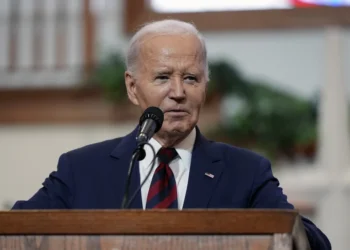The United States recently suspended imports of cattle, horses, and bison from Mexico in response to a growing threat: the return of a silent, flesh-eating invader called the New World Screwworm. The screwworm is more than just a bug. It’s a flesh-eating parasite that poses a severe risk to livestock and wildlife and is crawling its way north from Mexico.
If left unchecked, the screwworm could decimate American cattle, horses, and wildlife. And once it’s here, eradicating it could take decades and cost billions. The last time it happened, our livestock industry took 30 years to bounce back.
While Mexico cries foul, it’s time we stop pretending we’re dealing with a friendly, cooperative neighbor. We’re not.
Thankfully, the U.S. is not taking any chances and has responded swiftly and decisively. Secretary of Agriculture Brooke Rollins deserves enormous credit for jumping into action. The USDA quickly mobilized, ramping up strategies to stop the outbreak at its source and suspending live animal imports through ports of entry along the southern border on May 11.
The methods being used are the same ones that successfully eradicated screwworm from the U.S. in 1966: releasing massive numbers of sterile male screwworm flies. A female screwworm fly lives only 30 days, maximum. Since she gets just one chance to mate in this short window, mating with a sterile male means her line ends there. No offspring means no spread. Since each female can lay up to 3,000 flesh-eating larvae, breaking that reproductive cycle is the key to stopping the outbreak.
But for that to work, flights to disperse sterile male flies need to be constant and daily. Mexico knows this but still imposed restrictions, limiting USDA sterile fly dispersal flights and imposing customs duties on the tools needed for the job, such as plane parts, fly shipments, and dispersal equipment, delaying every aspect of the operation. Let that sink in: As a deadly parasite inches toward our border, the Mexican government is nickel-and-diming the planes and tools we’re using to stop it. That’s not cooperation. That’s sabotage.
Now Mexican President Claudia Sheinbaum has the audacity to call the 15-day import suspension “unfair.” What’s unfair is making American ranchers, farmers, and taxpayers suffer the consequences of Mexico’s negligent response.
We need to stop clinging to the fantasy that Mexico is a cooperative neighbor acting in good faith. This isn’t just a one-off failure, it’s part of a larger pattern. Whether it’s screwworm, fentanyl, cartel violence, or border security, the Mexican government continually proves it is not a trustworthy partner. We at the Texas Public Policy Foundation have seen it all before and have been warning about it for a long time. Too often, cooperation turns into obstruction. Responsibility turns into rhetoric. And when the U.S. takes steps to protect itself, Mexico accuses us of overreach. Mexico routinely fails to uphold its responsibilities and then cries foul when the U.S. takes action to protect itself. This isn’t how allies behave.
There is nothing unfair about defending your borders, whether from illegal narcotics or parasitic flies. There’s nothing unreasonable about expecting your neighbors to cooperate in good faith during emergencies. And there’s certainly nothing wrong with calling out failure when lives and livelihoods are at stake.
The U.S. must continue to treat Mexico’s resistance as what it is: a threat to our country. If they won’t cooperate, we should escalate current restrictions, not loosen them. We must hold them accountable — firmly, publicly, and without apology. In the end, what’s “unfair” is letting their problem become our crisis.
Melissa Ford is the policy director for the Texas Public Policy Foundation’s Secure and Sovereign Texas campaign, which strives to keep our nation safe and free.


















